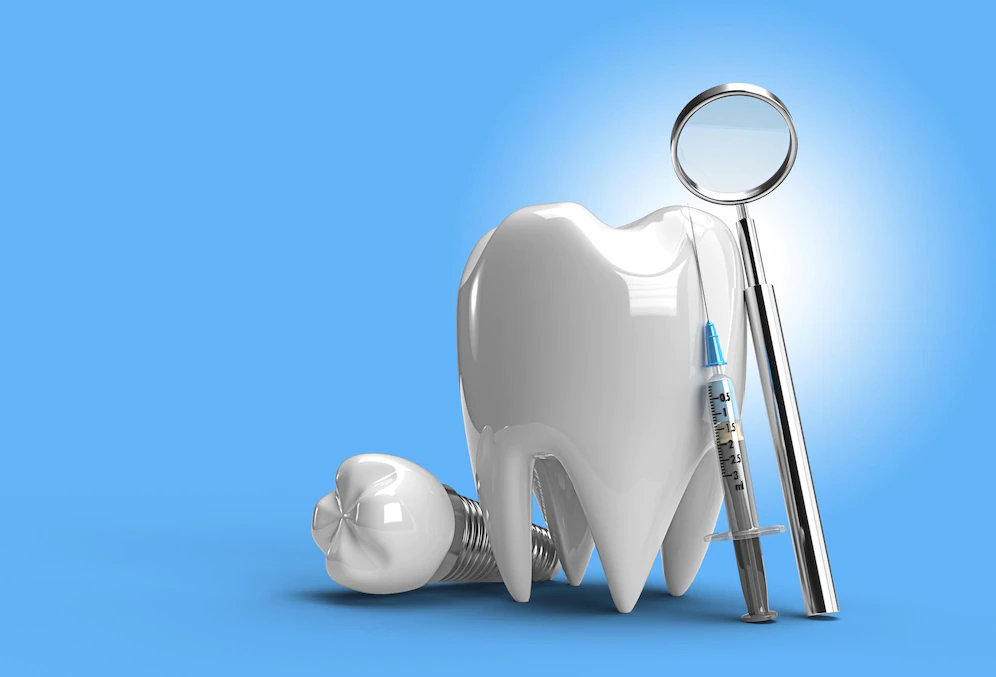Need for Implants:
Anyone who has lost a tooth or several teeth due to periodontal disease, an injury, or some other reason is a good candidate for a dental permanent implant. It is safe, long-lasting, and has aesthetic benefits too.
What are dental implants?
A tooth has two components, the crown, and the root. When a tooth is lost, the best replacement for the root would be an implant with a crown that can be fixed on top of it. The crown fixed acts as an active tooth and will aid in all the functions of the natural tooth.
- With the advancements in dentistry, the missing tooth can be replaced with an implant in as little as 24 hours.
Is it better than removable dentures?
Yes, One of the biggest benefits of dental implants is that they place less burden on the surrounding teeth and jaw bones and promote healing of the bone structures and gums under the teeth.
What are the long-term benefits of implants?
Dental implants tend to reduce the long-term risks posed to the jaw. Generally, a high-quality dental implant is expected to last a lifetime if placed properly by expert dentists and followed by proper oral hygiene.
Is any special requirement needed to get an implant?
- Your dentist will have to see if you have adequate bone height in your jaw that is needed to support the implant, and the best candidates will have healthy gum tissues that are free of any periodontal disease.
- Even if there is insufficient bone height, Your dentist will place a bone graft to support the implant.
What are the types of implants?
- Endosteal (in the bone implant): In this type of implant, the titanium post is screwed right into the jawbone. Each implant holds one or more prosthetic teeth.
- Subperiosteal (on the bone): These are placed on top of the jaw with the metal framework’s posts protruding through the gum to hold the prosthesis.
- Ridge Modification: Some patients with deformities in the upper or lower jaw might need what is called “ Ridge Modification”. The defect is then filled with bone or bone substitute to build up the ridge.
How is it implanted? What is the procedure?
- This procedure is simple and requires a couple of sittings. It starts with an evaluation of your jaw bone and whether it has enough space for a titanium post and ends with an experienced dentist placing the artificial tooth mount on the post/screw head.
Is implant care simple? Do I need special care after implantation?
Just like normal dental care, dental implants require at-home good oral cleaning, brushing, and flossing to prevent plaque buildup.
- Apart from these regular visits to a dentist for deep cleaning are needed. Implants do not need any special care. Treat them just like your own teeth!
Are implants painful?
The patient may not experience any pain, as the treatment is carried out under anesthesia. Some patients might feel very little discomfort, which is less than a tooth extraction.
Is it possible to do dental implants for the whole mouth?
- The quick answer is that you can do dental implants for your entire mouth. Dental implants are permanent, as opposed to regular dentures, which must be removed every evening.
What is the procedure for getting a dental implant?
The procedure for installing a dental implant includes several phases, including the removal of a damaged tooth.
When necessary, jawbone preparation (grafting) is performed.
- Dental implant placement
- Bone growth and healing
- Abutment placement
- Artificial tooth implantation.
For the best dental implantologists in Andhra Pradesh, Telangana, and Karnataka, visit Parthadental.com and Book a Free Consultation today!


